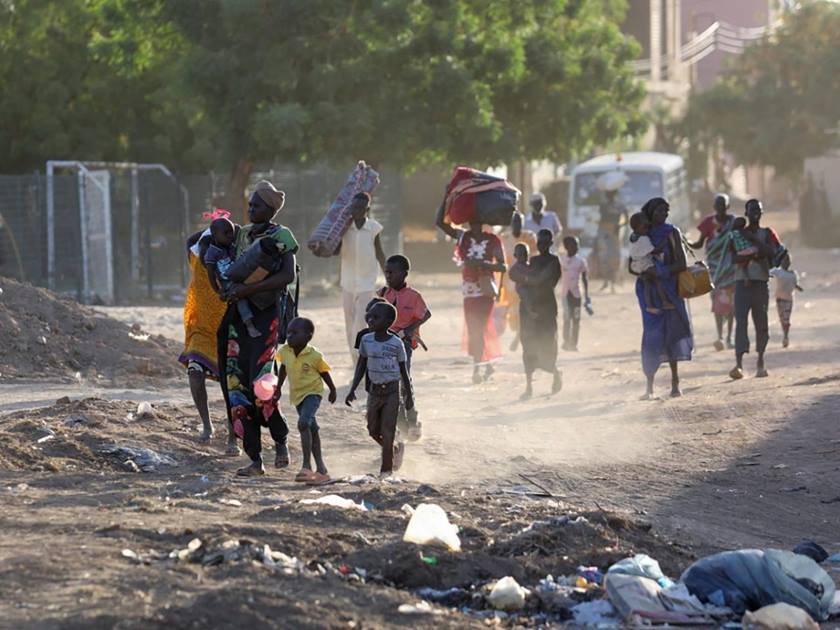The UN said it seeks $2.56 billion for its response plan to Sudan’s latest turmoil.
Qatar joined the global condemnation of the “storming and vandalism” of the head of Kuwait’s military office and Jordanian embassy in Khartoum on Tuesday.
In a statement, Qatar’s foreign ministry said that it strongly condemned the attacks, which took place on the same day on Monday amid Sudan’s ongoing political unrest.
“It [Qatar] stresses the need to provide protection for diplomatic missions and prosecute the perpetrators and bring them to justice. The Ministry of Foreign Affairs reiterates the position of the State of Qatar calling for an immediate cessation of the fighting in Sudan,” the statement read.
The Gulf state reiterated its calls on the warring parties to exercise restraint and “resorting to the voice of reason, giving priority to the public interest, and sparing civilians the consequences of fighting.”
“The Ministry also expresses the aspiration of the State of Qatar that all parties pursue dialogue and peaceful means to overcome differences,” the statement added.
On the day of the attack, the Gulf Cooperation Council condemned the “storming and vandalism” of the residence of the head of military at Kuwait’s embassy in Khartoum.
The Kuwaiti and Jordanian foreign ministries have issued statements confirming the attacks, though they made no mention of the perpetrators.
The ambush came amid Sudan’s ongoing conflict, which is its deadliest in years, despite the signing of a declaration of principles in Saudi Arabia on Thursday.
Fighting broke out on 15 April between the Sudanese paramilitary Rapid Support Forces (RSF) and the Sudanese army that proved to be a major disruption to Sudan’s transition to civilian rule.
The RSF is led by former militia leader General Mohamed Hamdan Dagalo, widely known as Hemedti.
Hemedti was the leader of the Janjaweed militia during the Darfur genocide in 2003, in which the group carried out war crimes in cooperation with former Sudanese president Omar Al Bashir.
Bashir was toppled in 2019 during a mass revolution in Sudan, during which protesters across the country demanded civilian leadership.
On Sunday, the United Nations confirmed that more than 750 people have been killed and more than 5,000 others have been injured since the beginning of the fighting, with the death toll feared to be higher.
The conflict has internally displaced nearly one million people, whilst up to 200,000 have fled to neighbouring countries.
Aviation has been disrupted by the fighting, with governments carrying out evacuations through Port Sudan Airport.
On Wednesday, the UN said it seeks $2.56 billion for its response plan to Sudan’s latest turmoil, “the highest for any humanitarian appeal for Sudan.”
“Today, 25 million people, more than half the population of Sudan, need humanitarian aid and protection. This is the highest number we have ever seen in the country,” Ramesh Rajasingham, the head of the UN Office for the Coordination of Humanitarian Affairs in Geneva and director of the Coordination Division, said, as quoted by Reuters.
On Wednesday, Doha carried out its latest evacuation of holders of a Qatari residency and delivered 35 tonnes of food aid.
Qatar has evacuated 1,044 residents, per the latest figures published by the Gulf state’s foreign ministry.







